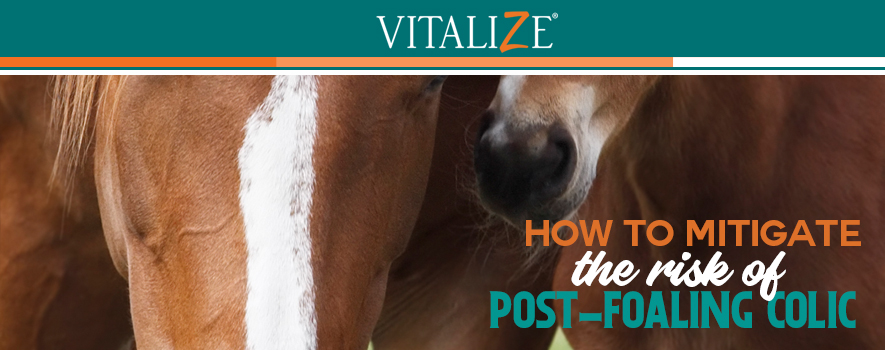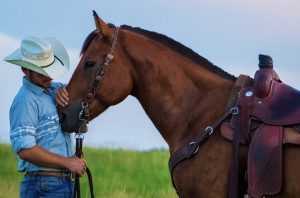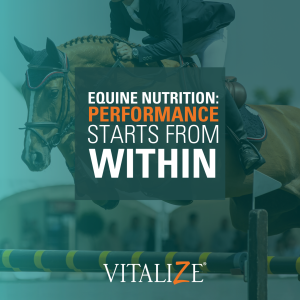
We know that with a change in routine, the microbiota of the equine gut will change as well, causing a shift that can sometimes lead to colic. Often, we recognize those “changes” as a long haul in the trailer, a hard day of competition or the wrong feed being given to your horse. While these are all reasons the gut flora can be altered, what about the change that happens to millions of mares every year? You guessed it – foaling is one big change that causes colic in many postpartum mares.
Why does colic occur after birth?
One of the most common causes of colic post-foaling stems from the stress of giving birth. After delivery, a shift in the microbial population in the gut can occur, causing the good pathogens in the gut to die, and allowing the bad ones to flourish. We often associate this microbial shift occurring in our competition horses; however, it is important to remember this happens at any type of stress, including mommas with newborns at their side.
How to prevent this type of colic?
Stabilizing the microbe population in the gut is something we can play a part in helping both mare and foal. During this time, it is important to minimize any outside stressors that may trigger anxiety. Be ready for delivery – maintain a clean, quiet and spacious environment for your mare to feel comfortable in while giving birth.
For the unavoidable stress, Vitalize® Equine Recovery Gel is here to assist. It is a unique blend of Amaferm®, MOS, antioxidants, vitamins, and minerals to help your horse recover after stressful situations. More specifically, the research-proven prebiotic Amaferm will help the good bugs in the gut grow, and MOS will help defend against the bad pathogens, which increases appetite and creates an overall “good gut feeling.” By combining these two ingredients in one handy tube, we are able to combat the threat of an imbalanced gut ratio and possible colic, improve comfort level, and maintain proper weight post-foaling.
How much do I give?
We recommend administering one tube of gel (30 mL) to the mare immediately after foaling, and anytime post-foaling she seems uncomfortable or stressed. It can be given two to four times each day. If administering to the foal during digestive upset, antibiotic treatment, worming, or vaccinations, begin by giving 10 mL and gradually increase the dosage as he or she grows. When it is time for weaning, administer 15 mL of gel twice per day during the transition period, since leaving mom is perhaps the most stressful time in its life!
Although foaling brings great joy to our programs, it also brings tremendous amounts of stress on our animals. Stay on top of the stress level this summer with Vitalize Equine Recovery Gel.

